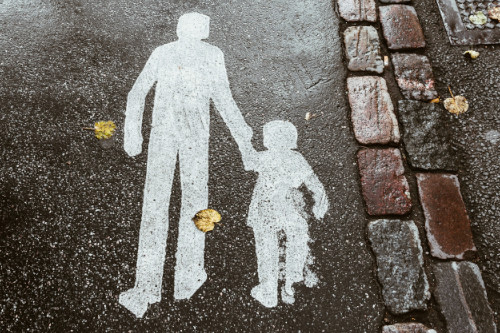The idea of a guide, mentor, or coach is as old as storytelling itself. From the wise figures of mythology, to Joseph Campbell’s Hero’s Journey, to Tarkovsky’s Stalker, humanity has always looked to figures who help others navigate uncertainty, confront inner struggles, and discover purpose. These archetypal guides are less directors than companions - walking alongside the individual, pointing towards possibilities, and reminding them of their own capacity for growth.
In contrast, works like Rosencrantz and Guildenstern Are Dead or Waiting for Godot capture something different: the stasis and liminality of lives caught in apathy. For many experiencing mental and behavioural health difficulties, this sense of waiting without direction or meaning can feel all too familiar. Coaching, then, becomes an antidote to that existential drift - a way to rediscover agency, purpose, and a sense of movement.
At Portobello Behavioural Health, we understand coaching not as an external force imposed on someone’s life, but as a way of helping individuals connect with their own values, strengths, and motivations. It is not about prescribing solutions or dictating paths; it is about fostering the inner resources that already exist, so that individuals can integrate new patterns sustainably into their lives. True behavioural change is not something bolted on from the outside - it is something cultivated within.
A useful, more modern, cultural touchstone here is Robin Williams’ portrayal of Sean Maguire in Good Will Hunting. Maguire is not a traditional therapist hidden behind office walls and rigid schedules, I would proposition that in fact Sean inhabits a role more similar to that of a coach. He meets Will on park benches, in classrooms, and in moments of raw self-disclosure. He does not dictate answers; he listens, shares, challenges, and ultimately creates space for Will to discover his own values and purpose. This is behavioural coaching at its best: non-dogmatic, non-prescriptive, grounded in real-world experience, and oriented towards helping people materialise their internal strengths in everyday life.
Behavioural science supports this approach. Studies show that sustainable change comes not from external instruction but from aligning behaviour with intrinsic values. When people act in ways that resonate with what they deeply care about, change is not just more likely to occur - it is more likely to last. Coaching facilitates this by helping people articulate those values, test them in real contexts, and build confidence in their ability to live by them.
Coaching is not about “fixing” people or prescribing solutions from a distance. It is about walking alongside individuals as they navigate challenges, much like the mythic guides of old. It is about offering curiosity, empathy, and gentle challenge where needed, while always recognising that the individual holds the key to their own transformation.
Ultimately, coaching is about more than support; it is about partnership. It is about fostering the conditions in which people can move from liminality to purpose, from waiting to acting, and from external dependency to internal empowerment. Just as in the stories we tell and retell across cultures, the coach is there not to take the journey for the individual, but to remind them that the journey is theirs to make - and that they already have within them what they need to walk it.












